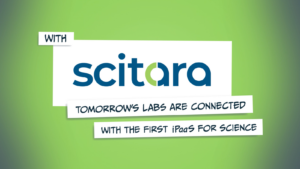
Customers often ask us why they should consider adopting Scitara DLX for lab instrument integration and data automation when they already have some level of point-to-point integrations in their labs. Point-to-point integrations have been the traditional approach to instrument integration for decades. Yet those approaches rarely produce a comprehensive, lab-wide solution for a variety of reasons. Below are 6 key reasons why adopting Scitara DLX is a better choice for integrating all your lab assets and achieving a paperless lab:
- Deployment Speed: Scitara DLX offers a wide range of pre-built connectors specifically tailored for laboratory environments. These connectors are designed to be configurable and seamlessly integrate with popular scientific instruments, instrument software, data management systems, and other laboratory informatics platforms. Scitara DLX cloud architecture, combined with commercial, configurable components means you can rapidly deploy a Scitara DLX platform and then rapidly implement the desired connectors and Orchestrations supporting lab automation.
- Asset/Workflow Flexibility: Scitara DLX is a commercial lab automation platform that puts power and control into our customers’ hands to manage configurations, automation workflows, and inclusion of new technology as needed. DLX empowers you with highly adaptable, user-managed orchestrations that may be configured to your specific laboratory requirements and modified whenever business rules change, enabling streamlined lab instrument integration, lab data automation, and workflow optimization.
- Scalability: Scitara DLX is designed using scalable, modern cloud technology that is designed to grow with our customers. The system automatically scales to adjust to more users and instruments being added with no additional effort needed on the part of our customers. Many point-to-point integrations have built-in scalability limitations that may or may not be documented, hindering lab instrument integration and efficient data automation efforts.
- Enhanced Data Integrity for Data in Flight: Scitara DLX provides an end-to-end chain of custody as part of standard operation. The automation and related payloads are all maintained in the Scitara DLX Event Stream. The Event Stream may be searched for relevant historical data at any time, ensuring data integrity and traceability throughout the lab instrument integration and data automation processes. The Event Stream is also an excellent source of documented evidence for Performance Qualification (PQ) documented evidence of a successful Orchestration execution, supporting lab data automation compliance.
- Validation Impact: Scitara DLX is designed from the ground up for deployment in regulated environments and Scitara offers the full portfolio of internal validation documentation needed to support an audit. In addition, as an iPaaS platform, IQ/OQ is done for every validated customer for every release, and appropriate documentation provided for review, leaving just the PQ for our customers to manage. With Scitara custom validation services, even that burden can be offloaded, reducing time, costs, and improving speed.
- Costs: Scitara pricing is predictable on a year-in-and-year-out basis and is attractive when compared to individual integration projects, many of which are not predictable and do not holistically cover the entire laboratory. Also, Scitara maintains responsibility for its connector portfolio, helping ensure that a software change in version will not unexpectedly break existing integrations. Our platform’s flexibility ensures that your labs can optimize productivity, minimize errors, and improve overall operational efficiency without having to contract hundreds of hours and thousands of dollars to a third party.
Traditional point-to-point integrations have allowed labs to digitalize some of their lab processes. Scitara DLX, a new, platform approach to integration, will digitalize all your lab processes so that you can accelerate your digital transformation. An investment in Scitara DLX future-proofs your lab and gives you more flexibility to address changing business needs, including adoption of new technologies as needed.
